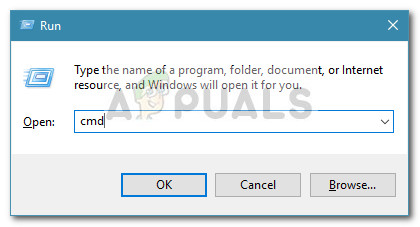Fix: An attempt was made to reference a token that does not exist
Some users have been reporting that they are unable to open Explorer.exe after upgrading to Windows 10 or after installing a Windows update (most likely the April’s Creators Update). The error message that is displayed is: “An attempt was made to reference a token that does not exist”.

This is not only occurring with the Explorer.exe program, and it’s also reported with a number of other Windows native utilities including Taskbar, Recycle Bin, MMC (Microsoft Management Console).
What causes the attempt was made to reference a token that does not exist error
After investigating the issue and looking at various user reports, we managed to create a list of potential culprits that might be responsible for this issue:
- April Creators Update caused the issue – This update released with an inconsistency that corrupted the files of various built-in utilities. The issue has yet been fixed, so applying the update now will not produce the same result.
- Corrupted system files – An inconsistent Windows update, a malware infection or manual interference might lead to this error if a series of system files get corrupted.
How to fix the attempt was made to reference a token that does not exist error
If you’re struggling to resolve this particular issue, this article will provide you with a basic set of troubleshooting steps. Below you have a collection of methods that other users in a similar situation have successfully used to either circumvent or treat the problem.
For the best results, we urge you to start with the first method and work your way down in the order that they are presented until you find a fix that is effective in resolving the “attempt was made to reference a token that does not exist” error. Let’s begin!
Method 1: Fixing corrupted files via Command Prompt
Some users finding themselves in a similar situation have managed to get the issue resolved after using an elevated Command Prompt to fix Registry system file corruption.
Keep in mind that this method will only be effective if the error message is actually triggered by file corruption. Here’s a quick guide on using an elevated Command prompt to resolve the “attempt was made to reference a token that does not exist” error:
- Press Windows key + R to open up a Run box. Then, type “cmd” and press Ctrl + Shift + Enter to open an elevated Command Prompt window. If prompted by the UAC (User account control) choose Yes.

- Just to make sure we’re in the right location, type the following command and press Enter:
cd %WINDIR%\System32
- Type or paste the following command and press Enter to re-register a series of required DLL files that might have got corrupted during the updating process:
for /f %s in ('dir /b *.dll') do regsvr32 /s %s - Close the elevated Command Prompt and restart your computer. At the next startup, see if the issue has been resolved by opening the same utility program that was previously triggering the error message.
If the error is still not resolved, continue down with the next method below.
Method 2: Reverting to the previous version of Windows
If the issue was not resolved using Method 1, let’s confirm that the issue was not triggered by the last Windows Update that you installed.
Some users have managed to get the issue resolved after using the Advanced Recovery Option menu to revert to the previous Windows version. Most of them re-applied the update after a while and reported no further problems.
Here’s a quick guide on reverting to the previous Windows version:
- Press the Start key and click the Power icon while holding the Shift key pressed. Continue holding the Shift key and click on Restart. This will instruct your computer to open the Advanced Recovery Options menu at the next startup. To ensure that the procedure is successful, keep holding the Shift key until the menu appears on the screen.

- Once the Advanced Recovery Options menu appears, release the Shift key and click on Troubleshoot. Then, go to Advanced options and click on Go back to the previous version of Windows.
- Once the process is complete, wait for the next startup to complete and see if the error has been resolved. If it was, it’s up to you if you want to re-apply the update or not.
If the error is still occurring, continue down with the next method below.
Method 3: Performing a repair install
If the issue is caused by system file corruption, you’ll most likely be able to fix it by performing a clean install. But if you’re looking for an alternative that won’t make you lose your personal files and applications, consider performing a repair install.
A repair install will solely replace Windows files and dependencies while leaving your files and applications intact. If you decide to go through with it, follow our repair install step by step guide (here).





